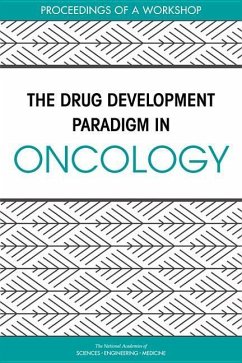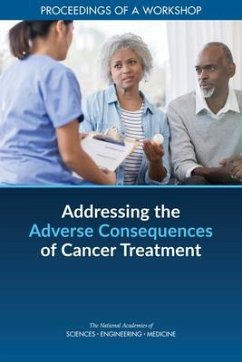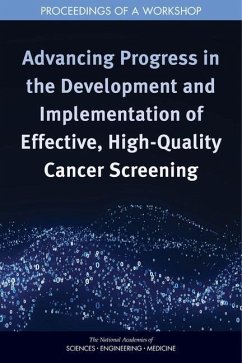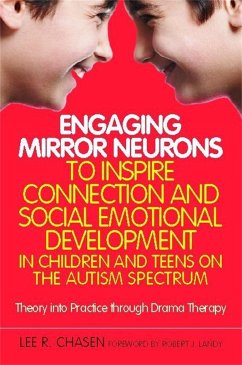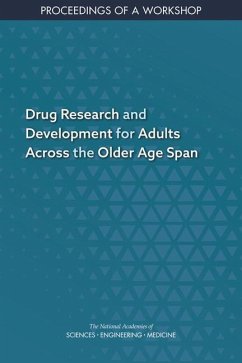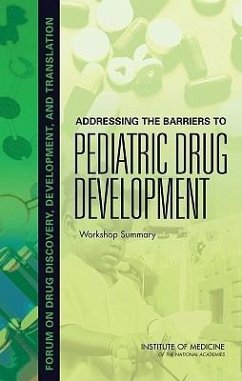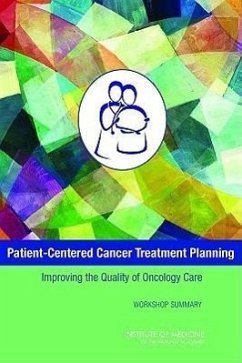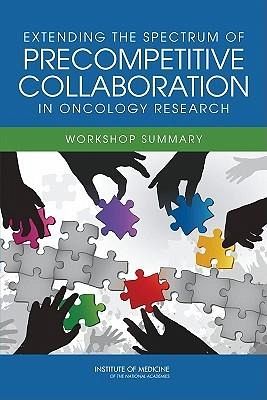
Extending the Spectrum of Precompetitive Collaboration in Oncology Research
Workshop Summary
Mitwirkender: Balogh, Erin; Patlak, Margie; Nass, Sharyl J
Versandkostenfrei!
Versandfertig in über 4 Wochen
39,99 €
inkl. MwSt.

PAYBACK Punkte
20 °P sammeln!
"Despite spending more time and money in developing novel therapeutics, the success rate for new pharmacologic treatments has been poor. Although the research and development expenditures have grown 13 percent each year since 1970 (a 50-fold increase), the number of new drugs approved annually is no greater now than it was 50 years ago. Over the past decade, skyrocketing costs and the complexity of the scientific knowledge upon which to develop new agents have provided incentives for alternative approaches to drug development, if we are to continue to improve clinical care and reduce mortality...
"Despite spending more time and money in developing novel therapeutics, the success rate for new pharmacologic treatments has been poor. Although the research and development expenditures have grown 13 percent each year since 1970 (a 50-fold increase), the number of new drugs approved annually is no greater now than it was 50 years ago. Over the past decade, skyrocketing costs and the complexity of the scientific knowledge upon which to develop new agents have provided incentives for alternative approaches to drug development, if we are to continue to improve clinical care and reduce mortality. These challenges create opportunities for improved collaboration between industry, academia, government, and philanthropic organizations at each stage in new drug development, marketing, and implementation. Perhaps the most appropriate initial step in addressing the need for collaboration is to consider more precompetitive relationships that allow sharing of scientific information to foster drug development.



